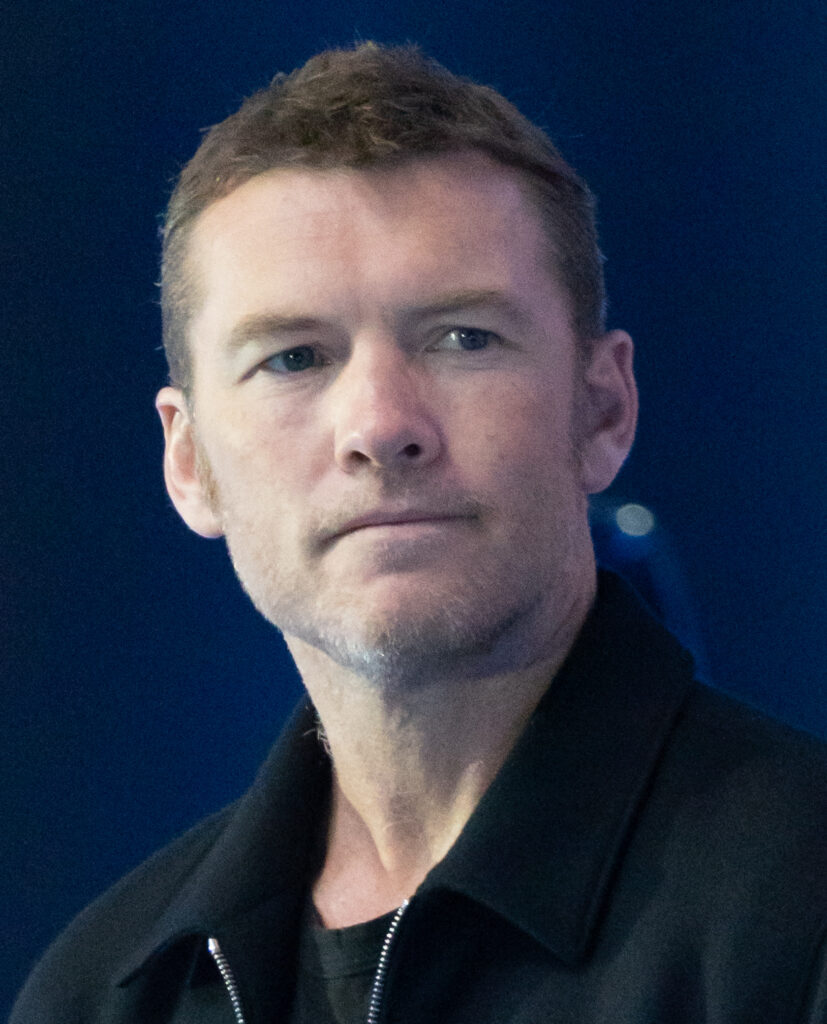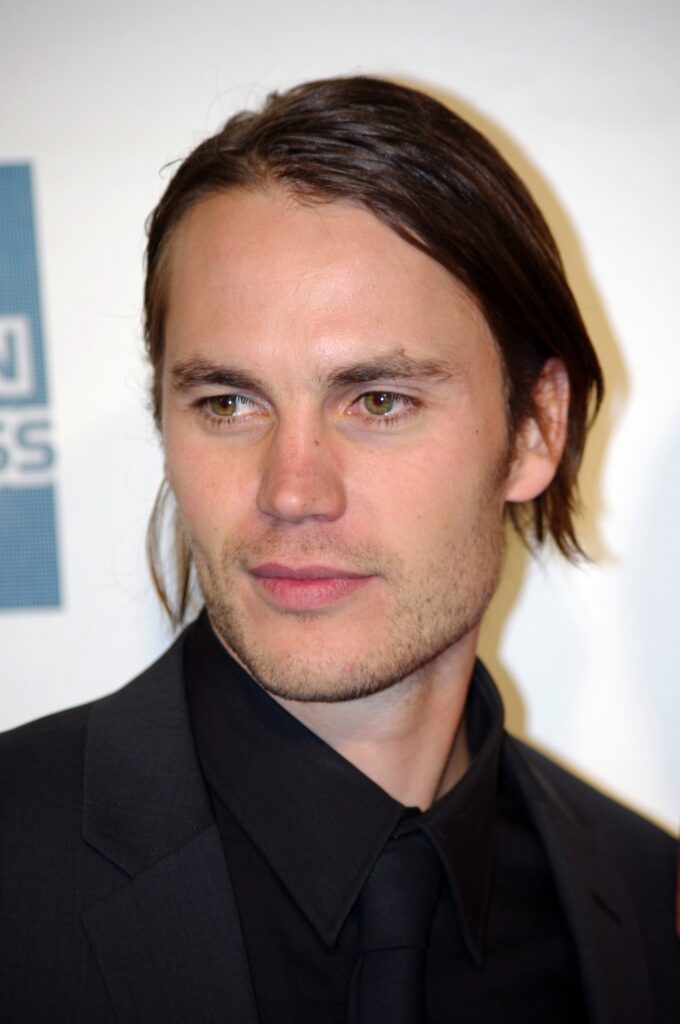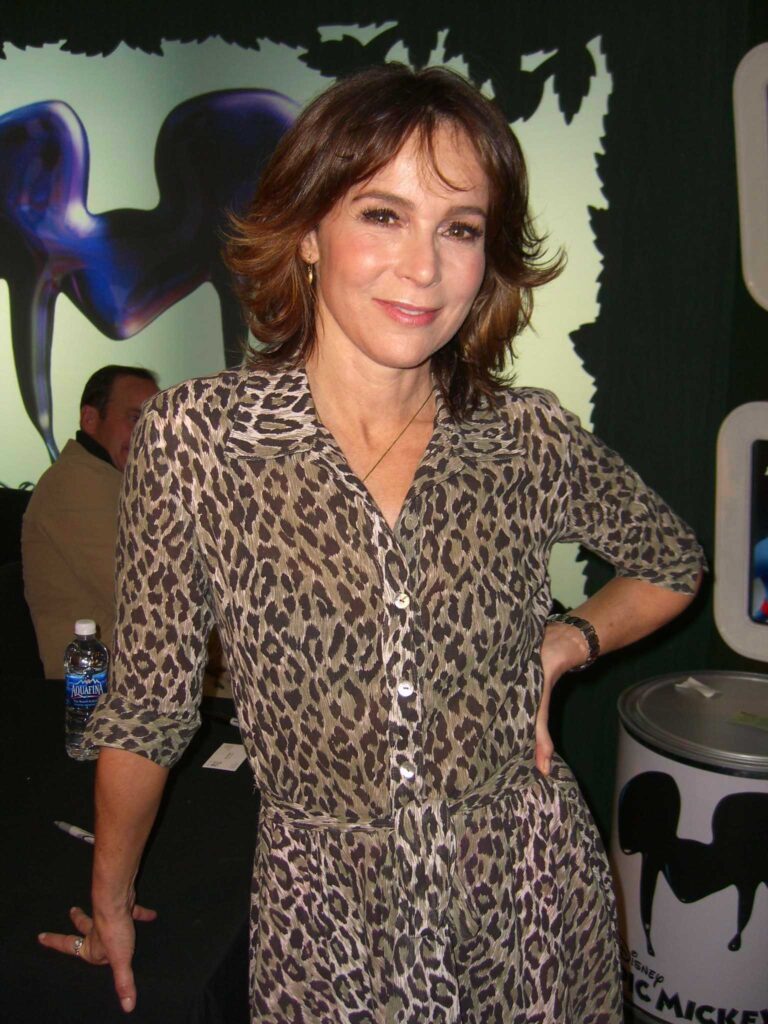The allure of Hollywood’s A-list is a powerful magnet, drawing in millions with the promise of fame, fortune, and enduring legacy. We envision the Meryl Streeps, Zendayas, and Denzel Washingtons of the world, seemingly born into an echelon of celebrity where every project is a hit and every performance is lauded. Yet, for every star who reaches the summit, there are countless others who, despite immense talent, opportunity, or even an aggressive industry push, find themselves stranded in the B-list, or even further down the ladder.
This phenomenon of the ‘almost A-lister’ is a captivating subject for any fan of movies and TV, offering a glimpse into the unpredictable, often brutal mechanics of the entertainment industry. It highlights that talent alone isn’t always enough, and that a cocktail of timing, public perception, personal choices, and even sheer luck can make or break a career. The journey from ‘next big thing’ to ‘what ever happened to them?’ is filled with cautionary tales and intriguing detours.
In this in-depth look, we delve into the stories of 14 actors whom Hollywood desperately wanted to turn into global superstars, only to see their bids for A-list status falter. We’ll explore the unique circumstances that shaped their paths, analyzing the decisions, the buzz, and the ultimate outcomes that left them just shy of the pinnacle. It’s a reminder that the path to true superstardom is rarely straightforward, and often, the most promising trajectories can be the most surprising.

1. **Victoria Justice: The Nickelodeon Dream That Fizzled**
For many, Victoria Justice was poised to be Nickelodeon’s next big sensation, meticulously groomed for a career trajectory mirroring the likes of other child stars who successfully transitioned to mainstream fame. Her time on *Victorious* positioned her perfectly for a seamless leap into the music and acting big leagues. There was a clear, concerted effort from the network to propel her to the forefront of young Hollywood, signaling to audiences and the industry alike that she was a star in the making.
However, despite the initial push, her music and acting career never quite took off in the way many anticipated. A significant factor in this was the parallel rise of her *Victorious* co-star, Ariana Grande, whose career exploded onto the scene, quickly overshadowing Justice’s efforts. This created an unfortunate dynamic where one’s ascent inadvertently eclipsed the other’s potential, making it incredibly challenging for Justice to carve out her own distinct space.
Industry insiders and fans alike observed that after Nickelodeon’s initial strong promises, Justice was reportedly sidelined as Grande’s popularity surged. This left her in a frustrating limbo, where opportunities dwindled and the momentum she once had dissipated. The situation was further complicated by persistent, albeit unsubstantiated, feud rumors that only served to cloud her public image and divert attention from her work.
Ultimately, these combined factors—the overwhelming success of a peer, the perceived withdrawal of crucial industry support, and the distraction of tabloid speculation—essentially ended Victoria Justice’s A-list aspirations before they could truly begin. It’s a poignant illustration of how quickly the tides can turn in the competitive world of entertainment, even for genuinely talented individuals who possess all the initial promise.
.jpg/440px-Dakota_Johnson_Venice_2018_(cropped).jpg)
2. **Dakota Johnson: Nepotism’s Limits and Charisma Concerns**
Dakota Johnson arrived in Hollywood with a legacy, being the daughter of famous parents, which undoubtedly provided her with a privileged entry point into the industry. This familial connection explains her initial opportunities, granting her access that many aspiring actors can only dream of. Given her lineage, there was a natural expectation that she would leverage these connections into a formidable A-list career, much like other ‘nepo babies’ who have found success.
However, despite a consistent stream of roles, including her high-profile lead in the *Fifty Shades* franchise, many critics and audiences have questioned her acting prowess and, more acutely, her on-screen presence. As one redditor observed, it’s puzzling “how Dakota Johnson keeps getting roles” because “by now, people should have realized she is a terrible actor.” This sentiment points to a widespread perception that her performances often fall short of compelling.
Furthermore, the recurring critique revolves around a perceived lack of charisma. A particularly blunt assessment states, “She actually seems to have negative charisma and takes away chemistry from the screen.” This is a significant hurdle for any actor aiming for leading roles, as captivating an audience often requires an innate spark that transcends mere technical skill. If an actor struggles to connect with viewers, it becomes difficult for them to carry a film or series on their own.
While projects she’s been in may succeed, it’s often “in spite of her, not because of her,” indicating that the success is attributed to other elements, such as strong co-stars or compelling narratives, rather than her individual contribution. This consistent pattern of being a peripheral factor in a project’s triumph, coupled with the ongoing doubts about her acting ability and magnetism, has kept Dakota Johnson from cementing herself as a universally recognized A-list draw.

3. **Katherine Heigl: The Rom-Com Star Who Couldn’t Find Her Fit**
Katherine Heigl rose to prominence on the strength of her television work, notably *Grey’s Anatomy*, and then successfully transitioned into a string of successful romantic comedies. For a period, she was the quintessential ‘it girl’ of the genre, starring in films like *Knocked Up* and *27 Dresses* that resonated with audiences. This success led to a concerted effort by studios to elevate her to A-list status, attempting to replicate her rom-com appeal across a broader range of cinematic endeavors.
However, the strategy of “cramming her into things she did not belong in” proved to be her undoing. The industry seemed determined to cast her in roles that were ill-suited to her strengths, pushing her beyond the comedic personas that had initially charmed audiences. This often resulted in a disconnect between her performance and the character, hindering her ability to truly embody the roles and connect with viewers on a deeper level.
A prime example cited is *One for the Money*, a film based on a popular book series. Critics noted that Heigl’s casting was fundamentally mismatched to the source material, with her character being described as an “East Coast brunette Italian.” This significant deviation from the established character alienated fans of the books and highlighted a broader issue: a failure to correctly identify and play to her particular acting strengths, moving her away from what made her successful.
This series of miscastings and the perception of being difficult to work with—a narrative that gained traction in the industry—ultimately stalled her ascent. Despite her earlier successes and clear talent in specific niches, Hollywood’s attempt to force her into a versatile A-list mold backfired, preventing her from achieving the widespread leading lady status that had once seemed within her grasp. Her career trajectory underscores the challenge of maintaining momentum when an actor is consistently placed in roles that are not a natural fit.

4. **Emilia Clarke: Game of Thrones’ Triumph vs. Franchise Flops**
Emilia Clarke achieved global recognition and immense popularity through her iconic portrayal of Daenerys Targaryen in the monumental HBO series *Game of Thrones*. This role cemented her as a household name and an international star, leading to widespread anticipation for her big-screen career. With such a massive platform and undeniable fan base, it seemed almost inevitable that she would effortlessly transition into A-list movie stardom, with Hollywood eager to capitalize on her newfound fame.
Following *Game of Thrones*, Clarke made ambitious moves to join several major film franchises, seemingly picking roles designed to ensure her continued prominence. She took on significant parts in properties such as Marvel, Star Wars, and Terminator, signaling her intention to become a leading force in blockbuster cinema. These were roles that, on paper, should have propelled her to the very top, offering guaranteed exposure and potential for long-term engagement with massive fan bases.
However, the unfortunate reality was that “all of those projects were flops!” Her ventures into these high-profile franchises, including *Terminator Genisys* and *Solo: A Star Wars Story*, failed to achieve critical or commercial success, despite her best efforts. This string of disappointments created a challenging narrative for her big-screen career, as it’s difficult to build A-list momentum when your major cinematic outings consistently underperform.
One analysis suggested that Clarke “would have been better off doing more rom-coms” as “she seems well-suited for those roles,” indicating a mismatch between her talent and the demanding nature of action-oriented franchise filmmaking. While her personal preference might be to “run around with guns,” the industry observes that if she wants “a good body of work,” she has “made poor choices,” emphasizing the strategic decisions that can impact an actor’s long-term standing in Hollywood. The stark contrast between her *Game of Thrones* success and her film career highlights the unpredictability of post-TV stardom.

5. **Alicia Silverstone: From ‘Clueless’ Icon to Unfulfilled Potential**
Alicia Silverstone became an overnight sensation and a bona fide cultural icon with her starring role as Cher Horowitz in the 1995 teen comedy *Clueless*. The film was a massive hit, and Silverstone’s performance was lauded, cementing her status as the quintessential ‘it girl’ of the mid-90s. The industry, and indeed the public, had high hopes for her, with many confidently predicting that “after *Clueless*, she was expected to own the next decade.” Her charisma, comedic timing, and widespread appeal made A-list status seem like a foregone conclusion.
Following such a colossal breakthrough, the natural expectation was for Silverstone to transition into a steady stream of high-profile leading roles that would further solidify her stardom. Hollywood was clearly invested in her, believing she had the unique blend of talent and marketability to become a long-term fixture in romantic comedies, dramas, and potentially even action films. The buzz around her was immense, and her face graced countless magazine covers.
However, despite the enormous potential, her subsequent film choices and performances failed to capture the same magic or critical acclaim as *Clueless*. While she continued to work, none of her projects managed to replicate the cultural impact or box office success that had initially launched her into the stratosphere. This led to a gradual fading from the intense spotlight that had once shone so brightly upon her.
Her career trajectory serves as a potent reminder that capturing lightning in a bottle once, while impressive, doesn’t guarantee sustained superstardom. The industry, and audience tastes, can be fickle, and without a consistent string of impactful roles, even the most promising starts can lead to a career that, while still active, never quite reaches the A-list heights predicted after an undeniable breakout performance.

6. **Sam Worthington: Avatar’s Immense Success, But a Career’s Plateau**
Sam Worthington found himself at the epicenter of cinematic history when he was cast as the lead in James Cameron’s *Avatar*, one of the highest-grossing films of all time. This monumental role instantly thrust him onto the global stage, making him a recognizable face to millions worldwide. The sheer scale and success of *Avatar* led many to believe that his career would skyrocket, positioning him as an undeniable A-list action hero for years to come. After all, “James Cameron knew what he was doing, after all, right?”
However, for Worthington, *Avatar* proved to be “the beginning and end of his good movie streak.” Despite the film’s unprecedented success, his subsequent projects largely failed to resonate with audiences or critics. He was cast in numerous films, many of which were high-concept or action-oriented, but they “just weren’t good, and people stopped going to see his work.” This created a challenging pattern where his presence alone couldn’t guarantee box office success or critical acclaim.
The expectation was that *Avatar* would be a springboard, launching him into a career filled with similar blockbuster leads. Instead, he struggled to find roles that matched the impact or quality of his defining performance. This stark contrast between one mega-hit and a series of underwhelming follow-ups prevented him from building the diverse and consistently successful filmography required of a true A-lister.
Intriguingly, his career might see a resurgence not through new ventures, but through a return to his most famous role. “Thankfully, for Worthington’s career, James Cameron has decided to make a few more *Avatar* movies,” offering a unique opportunity for him to reclaim some of the spotlight that had dimmed. This situation underscores how dependent an actor’s perceived star power can be on the success of their projects, even if those projects are limited to a single franchise.

7. **Taylor Kitsch: The ‘Next Big Thing’ Who Faced a Summer of Flops**
Taylor Kitsch emerged as a compelling figure after five seasons as Tim Riggins in *Friday Night Lights*, a critically acclaimed show that garnered a significant viewership. His charismatic portrayal of the troubled but endearing football player positioned him as a breakout star, with Hollywood quickly pegging him as “the next big thing.” The industry saw in him the raw potential to become a leading man, especially in the blockbuster action genre, and began to invest heavily in his future.
Recognizing his promise, Kitsch was cast in a series of high-profile lead roles, including the character of Gambit in *X-Men Origins: Wolverine*. The summer of 2012 was specifically “supposed to be the moment Taylor Kitsch emerged as the newest blockbuster leading man on the block,” with two major films slated for release that would undeniably launch him into superstardom. It was a calculated, aggressive push by studios to crown him a new action icon.
However, things “went about as disastrously awry as they possibly could,” not just for one movie, but for two. Kitsch starred in *Battleship* and *John Carter*, both of which were massive box office failures. These high-budget, high-expectation films tanked, creating a significant setback for his burgeoning career. The failure of these projects, in which he held the leading man mantle, was a crushing blow to his A-list aspirations.
After these expensive disappointments, he became “nothing more than an afterthought” in the eyes of many. Despite his evident talent, as noted in his work in *True Detective* Season 2, the financial performance of his big-budget vehicles overshadowed his individual abilities. His story illustrates the immense pressure placed on actors to deliver commercial success, and how quickly a promising trajectory can derail when massive investments fail to pay off.

8. **Megan Fox: From Blockbuster Muse to Blacklisted**
Megan Fox’s ascent to Hollywood prominence was undeniably swift and explosive, largely fueled by her breakout role as Mikaela Banes in the immensely successful *Transformers* franchise. This role, which contributed to the film grossing an impressive $709 million at the box office, instantly transformed her into a highly hyped actress in Hollywood, even earning her several awards for her performance. She was, for a period, the quintessential ‘it girl,’ seemingly destined for a long and illustrious career at the top.
However, her trajectory took a dramatic, self-inflicted turn following controversial comments she made about the film’s director, Michael Bay. Comparing him to a notoriously tyrannical historical figure proved to be a critical misstep, irrevocably damaging her professional standing. This bold, and some would say ill-advised, personal choice led directly to her being cut from the third installment of the *Transformers* series, a decision that sent shockwaves through the industry and her burgeoning career.
This incident effectively saw her ‘pseudo-blacklisted’ from Hollywood’s A-list circles, dramatically altering the types of opportunities available to her. Instead of leading major blockbusters, she was relegated to supporting roles, often in films that failed to garner critical acclaim or significant box office success, such as the *Teenage Mutant Ninja Turtles* reboots. It’s a stark illustration of how quickly personal choices and public perception can impact an actor’s potential for superstardom.
Her story underscores a brutal reality in the entertainment industry: while talent and looks open doors, managing public relations and maintaining professional relationships are equally crucial for sustained success. The industry’s unforgiving nature meant that one highly publicized misstep eclipsed her initial promise, turning a once-bright star into a cautionary tale about the perils of outspokenness.

9. **Rick Moranis: A Family Man’s Poignant Retreat**
Rick Moranis carved out an indelible niche for himself in 1980s cinema, becoming a beloved comedic actor renowned for his memorable characters in films like *Ghostbusters*, *Spaceballs*, and the *Honey, I Shrunk the Kids* series. He was widely regarded as Hollywood’s next big comedic force, with many seeing him as a peer to established legends like Bill Murray. His unique brand of humor and consistent box office appeal made him a household name, and a future of continued blockbuster success seemed all but guaranteed.
However, a profound personal tragedy irrevocably altered his career path. Following the devastating passing of his wife in 1991, Moranis made the incredibly difficult, yet deeply personal, decision to leave the industry in 1997. His singular focus shifted to being a present and dedicated father to his two young children, prioritizing family over fame and fortune. This poignant personal choice, while universally respected, effectively ended his A-list trajectory.
His departure initiated a lengthy sabbatical from acting, leaving a void in the comedic landscape that many fans keenly felt. It’s a rare and admirable instance of an actor consciously stepping away from the precipice of superstardom for deeply personal reasons, foregoing the immense pressures and demands of Hollywood for a quieter, more meaningful life. This strategic retreat, borne out of love and responsibility, stands as a testament to values beyond career ambition.
Yet, for fans, there remains a glimmer of hope. News emerged in 2020 that Moranis was slated to make a long-awaited return to acting in another *Honey, I Shrunk the Kids* installment. This potential comeback highlights the enduring affection for his work and the possibility of a late-career resurgence, even after decades away, proving that some stars never truly fade, even if their path diverged for a time.

10. **Alex Pettyfer: The Price of Perceived Arrogance**
Alex Pettyfer made an impressive breakthrough in Hollywood with his 2006 performance in *Stormbreaker*, quickly garnering numerous award nominations and even securing modeling campaigns for Burberry. His striking looks and youthful appeal positioned him as a strong contender for the title of the ‘next Hollywood heartthrob,’ with studios and audiences alike taking notice of his rising star power. Roles in films like *Beastly*, *I Am Number Four*, and *Magic Mike* further solidified his status as an actor to watch.
Despite this promising start and the considerable industry push, Pettyfer’s ascent was significantly hampered by a growing negative public perception. During several high-profile interviews, he reportedly came across as “arrogant and ungrateful for the chance he’d been given.” This demeanor, relayed through media appearances, began to foster a perception within Hollywood that he was difficult to work with, directly impacting his future opportunities.
This crucial misstep in managing his public image proved to be a severe blow to his career momentum. As the context plainly states, “no one wanted to work with him” after these incidents, leading to a dramatic downturn in his prospects. The industry, ever sensitive to reputation and on-set dynamics, quickly backed away from an actor perceived as unappreciative or problematic, regardless of his talent or appearance.
Consequently, Alex Pettyfer, once touted as a potential A-lister and leading man, slowly faded from the spotlight, becoming “nothing more than an afterthought” in the minds of many. His career serves as a potent reminder that in Hollywood, humility, professionalism, and a positive attitude are as vital as talent and good looks when navigating the treacherous path to superstardom. Public perception can truly make or break an actor’s trajectory.

11. **Josh Hartnett: Rejecting the A-List Machine**
Josh Hartnett was undeniably singled out as Hollywood’s ‘next big thing’ very early in his career, riding a wave of success thanks to his natural talent and handsome appeal. Studio executives, seeing his potential, were eager to mold him into one of two coveted archetypes: a leading heartthrob or a major action hero. The industry machinery was ready to propel him to the very top, offering him roles designed to cement his A-list status and ensure a prolific blockbuster career.
However, Hartnett harbored a distinct aversion to this pre-ordained path, openly stating that he “despised the idea” of being pigeonholed. In a remarkably brave and unconventional move, he made a strategic decision to take a step back, scale down his workload, and instead focus on smaller, more independent projects that resonated with his artistic sensibilities. This was a deliberate rejection of the intense pressures associated with mainstream superstardom.
His commitment to this path was so profound that he famously turned down the opportunity to play iconic characters like Batman and Superman. These were roles that, for most actors, represent the pinnacle of fame, fortune, and global visibility. Hartnett, however, consciously opted out, choosing a path less traveled rather than succumbing to the commercial demands of the studio system, showcasing an actor actively embracing autonomy over celebrity.
While this decision meant he didn’t reach the ubiquitous A-list status once predicted for him, his approach ultimately allowed him to cultivate a respected career on his own terms. Intriguingly, his long game seems to be paying off, as he currently finds himself in the midst of a “well-deserved renaissance,” proving that sometimes, choosing your own path, even if it deviates from the expected, can lead to enduring artistic fulfillment and a unique legacy.

12. **Jennifer Grey: Cosmetic Surgery and a Fading Star**
Jennifer Grey exploded onto the Hollywood scene with a series of instant classics, including her roles in John Hughes’ *Ferris Bueller’s Day Off* and, most notably, *Dirty Dancing*. Her captivating performance in the latter not only embedded her into the cultural consciousness but also garnered her a Golden Globe nomination for ‘Best Actress – Musical or Comedy.’ It was, as the industry noted, “a hell of a way to announce herself on the scene,” and her impact was so profound that she even inspired Madonna to write a song, signaling a star on the rise with immense A-list potential.
At the height of her fame and undeniable cultural impact, Grey made a deeply personal choice that would, by her own admission, irrevocably alter her career. She decided to undergo cosmetic surgery, a decision that transformed her appearance. While many public figures undergo such procedures without significant career repercussions, for Grey, the change was perceived by audiences and the industry as altering the very essence of her recognizable persona.
In a candid reflection, Grey later admitted that this decision “effectively ended her chances of continued mainstream success.” The alteration to her face, particularly her nose, made her less recognizable and, in a way, erased the unique features that had contributed to her breakout appeal. The public, and arguably casting directors, struggled to connect with her new look, causing her star power to wane.
Her career trajectory took a sharp downturn, essentially “sent her back to square one” in Hollywood. Jennifer Grey’s story is a powerful, if tragic, illustration of how an actor’s physical image, and the public’s perception of it, can profoundly impact their professional life, demonstrating that sometimes, even personal aesthetic choices can have unexpected and far-reaching career consequences.

13. **Garrett Hedlund: Missed Opportunities and Critical Decisions**
Garrett Hedlund entered Hollywood with aspirations of superstardom at the young age of 18, making a notable first film appearance as Patroclus in *Troy*. This promising start was followed by a successful role as Sam Flynn in *Tron: Legacy*, establishing him as a rising talent with genuine leading man potential. He had the looks, the early exposure, and the backing that suggested a clear path to the A-list.
However, his career trajectory was significantly impacted by a series of “grave errors that cost him some blockbuster hits.” These were not failures of performance or public perception, but rather crucial strategic decisions concerning the roles he chose to accept—or, more accurately, reject. One such instance was declining the role of Finnick Odair in the wildly popular *Hunger Games* franchise, a part that went on to become a major career highlight for another actor.
Compounding this, Hedlund also reportedly “was offered the role of Christian Grey in *Fifty Shades of Grey*, another role he turned down.” These were not minor parts but lead roles in massively successful, high-profile franchises that would have provided global exposure and cemented his status as a bankable star. His decision to pass on such significant opportunities proved to be a critical miscalculation in his pursuit of A-list status.
These “not the best decisions” ultimately prevented him from capitalizing on his early momentum and securing the consistent stream of high-profile work necessary for superstardom. Hedlund’s story serves as a compelling case study in how an actor’s strategic choices regarding project selection—or rejection—can profoundly dictate their career trajectory, illustrating that even with immense talent and initial buzz, the wrong turns can lead away from the pinnacle of Hollywood success.
In the ever-unpredictable realm of Hollywood, the journey to A-list status is fraught with more than just talent competitions and industry politics. As these captivating narratives demonstrate, an actor’s personal choices, the intense glare of public perception, the profound impact of tragic events, and critical strategic decisions to either embrace or reject the pressures of the system play an equally monumental role. It’s a landscape where a single interview, a heartfelt family decision, a change in appearance, or the choice to pass on a blockbuster can redefine a career’s entire trajectory. Ultimately, achieving and maintaining superstardom is a complex tapestry woven from a thousand threads, where the human element, for better or worse, often holds the most sway.




